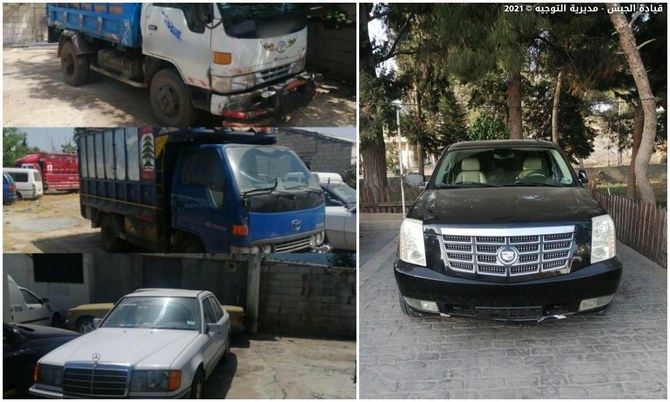![Mavia's bakers prepare dough for the next batch of bread [Maghie Ghali/Al Jazeera]](https://www.aljazeera.com/wp-content/uploads/2021/05/Mavias-bakers-prepare-dough-for-the-next-batch-of-bread.-Photo-by-Maghie-Ghali.jpg?resize=770%2C513)
By Maghie Ghali – aljazeera.com — – Beirut, Lebanon – As the deepening economic crisis continues, the soaring prices of basic necessities like bread have pushed many Lebanese below the poverty line. With Lebanon’s bakers relying on imported wheat to produce their goods, the cost of even the heavily subsidised traditional flatbread – eaten by rich and poor alike with most meals – has tripled since 2019. Mavia Bakery, a small outfit tucked away in Beirut’s Gemmayzeh district, is trying to ensure Lebanon has better food security and is less dependent on imported flour for its bakeries with a series of humanitarian projects. Opened in 2020 by educational NGO Sadalsuud founder and avid baker Brant Stewart, the bakery works out of a cooperative kitchen in Tripoli and only hires women from marginalised communities. “This space came about because I wanted to do something that is desirable and needed regardless of who makes it, otherwise it’s not sustainable,” Stewart told Al Jazeera. “The number of people willing to buy something because of who made it dries up quickly – there are only so many beaded bags that people can buy, but everyone needs bread.”
Locally grown
Currently, 80 percent of the wheat Lebanon consumes is imported from countries like Ukraine, which has high production on vast tracts of land Lebanon lacks. What little local wheat is grown is used as freekeh or burghul (bulgur). “Wheat as a commodity crop is not financially viable in Lebanon. There are people who grow their own wheat for personal use but, on an industrial scale, local wheat doesn’t happen,” Stewart said. “The flour that we buy here from the Bakalian mill, which is made from imported wheat, costs 1,500 lira per kilo [$1], which is much cheaper than the local Bekaa wheat that we buy, which is for 5,000 lira [$3.30] a kilo because there is not enough being grown to cover demand. “There hasn’t been a mill focused on milling locally grown wheat either – these massive mills working imported wheat can’t just take a small amount of local stuff and mill it,” he added. “These machines are huge and it really is the milling that is the missing link in the chain. Milling is an art and the milling that’s happening on a smaller scale is not milled well and is low quality.”




![The Lebanese pound has lost more than 85 percent of its value against the dollar since the country decended into economic crisis in 2019 [File: Mohamed Azakir/Reuters]](https://www.aljazeera.com/wp-content/uploads/2021/05/1000-5.jpg?resize=770%2C513)





